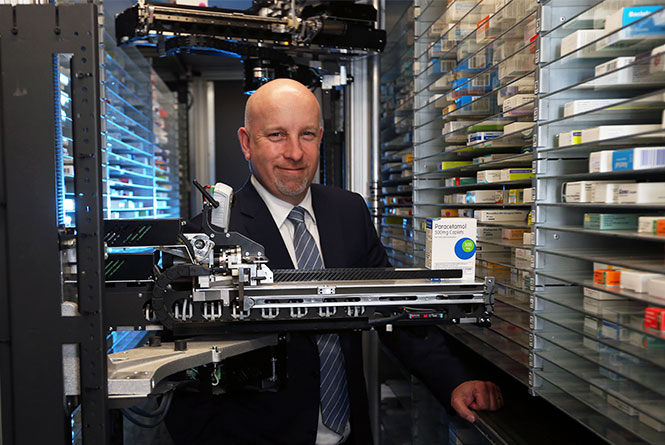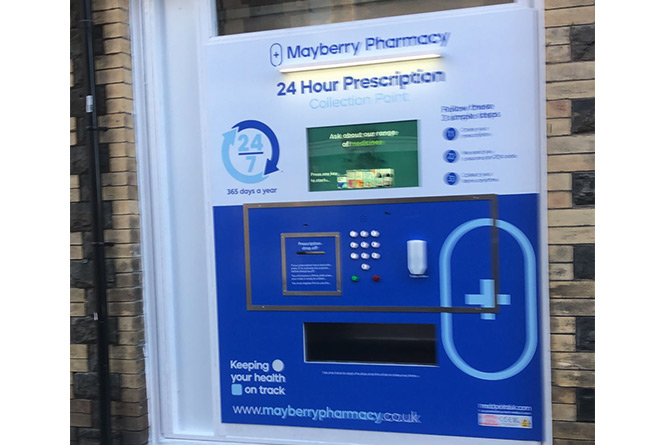Support quality, independent, local journalism…that matters
From just £1 a month you can help fund our work – and use our website without adverts. Become a member today

Many medications are in short supply, while some are increasing in price due to global issues – putting pressure on community pharmacies in Wales, a pharmacist has said.
Paul Mayberry, of Mayberry Pharmacies, runs seven pharmacies across south Wales, including in Blackwood, Caerphilly, and Crumlin
He said stock and pricing issues are because of trade routes changing in the Red Sea, issues with the Suez Canal and possibly, Brexit.
The issue is also partly due to drug prices and reimbursements from the Welsh Government.
Mr Mayberry, who has 30 years of experience in the industry, told Caerphilly Observer that stock issues have greatly increased in recent years.
He said he currently has stock issues with 163 different lines – a number, he said, would have been as low as half a dozen five years ago.
Problems with 163 lines
Of the 163 lines that Mr Mayberry could not stock, around 120 were unavailable, while 40 were now so expensive that he would face dispensing them at a loss.
Medication affected included antibiotics, painkillers and antidepressants.
Recently, the UN stated that global trade routes were being affected by Red Sea attacks, the war in Ukraine and low water in the Panama Canal – something Mr Mayberry is seeing first-hand.
While Mr Mayberry can still order those 40 medications – if he does so he could lose money because of the way pharmacy contracts are set up.
He said: “The Welsh Government tells us how much they’re going to pay us for any drug.
“For instance, there’s a drug here, I can see, an anti-depressant. The price that the government pays me is £1.71. The cheapest I can get it for is £5.22. So I would be losing £3.50 on that. I would dispense 100 of those a month.”
Mr Mayberry added that previously this issue was “low volume”, affecting around 1% or 2% of lines.
He continued: “Now, there are dozens and dozens.”
While other businesses can adjust the prices of what they sell to address the shortfall, pharmacists cannot.
Mr Mayberry said: “We can’t do that because the government set the prices and there’s a lag between what they pay us…before they see the price going up.”
This means pharmacists can go “three to six months” reporting the price increase, with results including a small increase in what the government pays, full reimbursement, or no change, according to Mr Mayberry.
He continued: “We are in the dark dispensing things – so many things – at a loss.”
“Double whammy”
Stock issues are compounded by other problems facing community pharmacies – such as needing to offer more services and an increase in fuel costs and wages.
Mr Mayberry said: “We’ve got this double whammy of not being able to put up our prices and being forced to dispense a loss.”
This is why Mr Mayberry has introduced procedures to ensure his processes are as efficient as possible – such as his PharmacyX programme which helps to free up pharmacists from dispensing so they can see patients instead.

Mr Mayberry also has a 24-hour dispensing machine at his Pontypool pharmacy.
Acting in a “cleverer” way means that Mr Mayberry’s pharmacies can manage the workload – but other pharmacies have not fared so well.
Mr Mayberry said: “A friend of mine had four pharmacies, he’s had to sell one. Another friend of mine was the managing director of 34 pharmacies. They’re on the market.
“So these are significant-sized businesses…that can no longer exist.”
Welsh Government response
A Welsh Government spokesperson said: “We are working with the UK Government medicines supply team and other partners to make sure pharmacies in Wales have the supplies they need.
“We issued a written statement about medicines shortages in October and have had regular contact with the NHS to provide support to clinicians in managing shortages across a number of lines.
“We are confident suppliers are working to address any supply issues, but should people have difficulty in obtaining a prescription they may need to visit a different pharmacy or, in some cases, discuss options for an alternative treatment with their GP.”
Support quality, independent, local journalism…that matters
From just £1 a month you can help fund our work – and use our website without adverts.
Become a member today
